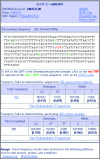SNP500Cancer: a public resource for sequence validation, assay development, and frequency analysis for genetic variation in candidate genes
- PMID: 16381944
- PMCID: PMC1347513
- DOI: 10.1093/nar/gkj151
SNP500Cancer: a public resource for sequence validation, assay development, and frequency analysis for genetic variation in candidate genes
Abstract
The SNP500Cancer database provides sequence and genotype assay information for candidate SNPs useful in mapping complex diseases, such as cancer. The database is an integral component of the NCI Cancer Genome Anatomy Project (http://cgap.nci.nih.gov). SNP500Cancer reports sequence analysis of anonymized control DNA samples (n = 102 Coriell samples representing four self-described ethnic groups: African/African-American, Caucasian, Hispanic and Pacific Rim). The website is searchable by gene, chromosome, gene ontology pathway, dbSNP ID and SNP500Cancer SNP ID. As of October 2005, the database contains >13 400 SNPs, 9124 of which have been sequenced in the SNP500Cancer population. For each analysed SNP, gene location and >200 bp of surrounding annotated sequence (including nearby SNPs) are provided, with frequency information in total and per subpopulation as well as calculation of Hardy-Weinberg equilibrium for each subpopulation. The website provides the conditions for validated sequencing and genotyping assays, as well as genotype results for the 102 samples, in both viewable and downloadable formats. A subset of sequence validated SNPs with minor allele frequency >5% are entered into a high-throughput pipeline for genotyping analysis to determine concordance for the same 102 samples. In addition, the results of genotype analysis for select validated SNP assays (defined as 100% concordance between sequence analysis and genotype results) are posted for an additional 280 samples drawn from the Human Diversity Panel (HDP). SNP500Cancer provides an invaluable resource for investigators to select SNPs for analysis, design genotyping assays using validated sequence data, choose selected assays already validated on one or more genotyping platforms, and select reference standards for genotyping assays. The SNP500Cancer database is freely accessible via the web page at http://snp500cancer.nci.nih.gov.
Figures


Similar articles
-
SNP500Cancer: a public resource for sequence validation and assay development for genetic variation in candidate genes.Nucleic Acids Res. 2004 Jan 1;32(Database issue):D528-32. doi: 10.1093/nar/gkh005. Nucleic Acids Res. 2004. PMID: 14681474 Free PMC article.
-
An integrated database-pipeline system for studying single nucleotide polymorphisms and diseases.BMC Bioinformatics. 2008 Dec 12;9 Suppl 12(Suppl 12):S19. doi: 10.1186/1471-2105-9-S12-S19. BMC Bioinformatics. 2008. PMID: 19091018 Free PMC article.
-
SNP-RFLPing 2: an updated and integrated PCR-RFLP tool for SNP genotyping.BMC Bioinformatics. 2010 Apr 8;11:173. doi: 10.1186/1471-2105-11-173. BMC Bioinformatics. 2010. PMID: 20377871 Free PMC article.
-
Simple SNP-based minimal marker genotyping for Humulus lupulus L. identification and variety validation.BMC Res Notes. 2015 Oct 6;8:542. doi: 10.1186/s13104-015-1492-2. BMC Res Notes. 2015. PMID: 26438052 Free PMC article.
-
Genome and genetic resources from the Cancer Genome Anatomy Project.Hum Mol Genet. 2001 Apr;10(7):663-7. doi: 10.1093/hmg/10.7.663. Hum Mol Genet. 2001. PMID: 11257097 Review.
Cited by
-
Single nucleotide variation in the TP53 3' untranslated region in diffuse large B-cell lymphoma treated with rituximab-CHOP: a report from the International DLBCL Rituximab-CHOP Consortium Program.Blood. 2013 May 30;121(22):4529-40. doi: 10.1182/blood-2012-12-471722. Epub 2013 Mar 20. Blood. 2013. PMID: 23515929 Free PMC article.
-
Genetic variation in CLDN1 and susceptibility to hepatitis C virus infection.J Viral Hepat. 2010 Mar;17(3):192-200. doi: 10.1111/j.1365-2893.2009.01166.x. Epub 2009 Aug 7. J Viral Hepat. 2010. PMID: 19674288 Free PMC article.
-
Developing a web-based information resource for palliative care: an action-research inspired approach.BMC Med Inform Decis Mak. 2007 Sep 14;7:26. doi: 10.1186/1472-6947-7-26. BMC Med Inform Decis Mak. 2007. PMID: 17854509 Free PMC article.
-
The role of TP53 and p21 gene polymorphisms in breast cancer biology in a well specified and characterized German cohort.J Cancer Res Clin Oncol. 2010 Sep;136(9):1369-75. doi: 10.1007/s00432-010-0788-9. Epub 2010 Feb 2. J Cancer Res Clin Oncol. 2010. PMID: 20127253
-
PhosSNP for systematic analysis of genetic polymorphisms that influence protein phosphorylation.Mol Cell Proteomics. 2010 Apr;9(4):623-34. doi: 10.1074/mcp.M900273-MCP200. Epub 2009 Dec 8. Mol Cell Proteomics. 2010. PMID: 19995808 Free PMC article.
References
-
- Strausberg R.L., Simpson A.J.G., Wooster R. Sequence-based cancer genomics: progress, lessons, and opportunities. Nat. Rev. Genet. 2003;4:409–418. - PubMed
-
- Cann H.M., de Toma C., Cazes L., Legrand M., Morel V., Piouffre L., Bodmer J., Bodmer W., Bonne-Tamir B., Cambon-Thomsen A., et al. A human genome diversity cell line panel. Science. 2002;296:261–262. - PubMed
-
- Bergen A.W., Haque K.A., Qi Y., Beerman M.B., Garcia-Closas M., Rothman N., Chanock S.J. Comparison of yield and genotyping performance of multiple displacement amplification and Omniplex™ whole genome amplified DNA generated from multiple DNA sources. Hum. Mutat. 2005;26:262–270. - PubMed
-
- Bernig T., Taylor J.G., Foster C., Staats B., Yeager M., Chanock S. Sequence analysis of the mannose-binding lectin (MBL2) gene reveals a high degree of heterozygosity with evidence of selection. Genes Immun. 2004;5:461–476. - PubMed
Publication types
MeSH terms
Grants and funding
LinkOut - more resources
Full Text Sources
Other Literature Sources
Research Materials

